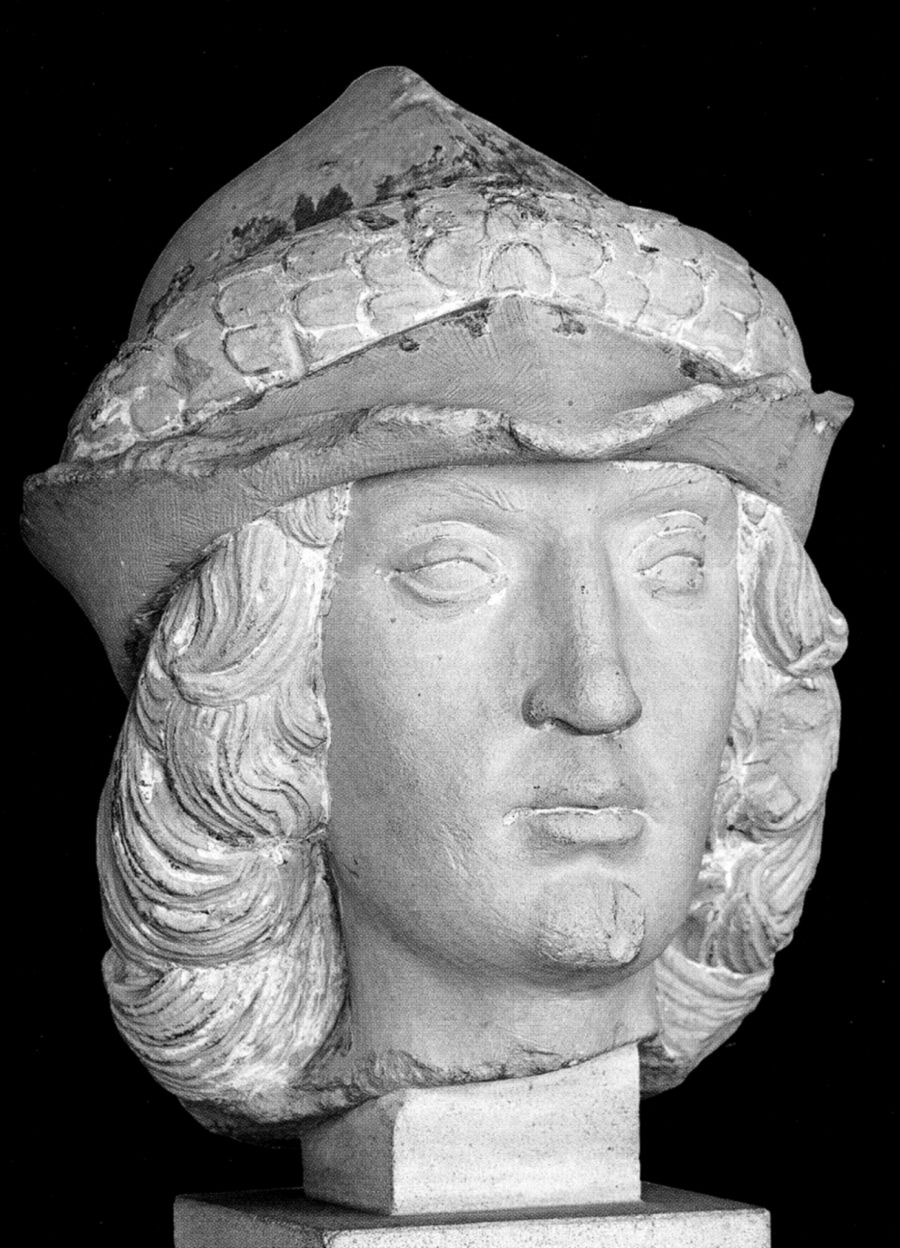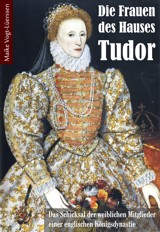Auch der Historiker Desmond Seward ist nicht bereit, den Unsinn der Kunsthistoriker zu übernehmen. Für ihn ist der Gatte von Suzanne von Bourbon Charles II. (oder Karl II.) von Bourbon. Suzannes Onkel Karl (1433-1488), Kardinal und Erzbischof von Lyon, war nie zum Herzog von Bourbon erhoben worden. In Desmond Sewards Buch "Prince of the Renaissance – The Life of François I", in London im Jahr 1973 erschienen, lesen wir über Charles II. von Bourbon auf den Seiten 118, 120 und 125 Folgendes:
"Charles II, Duc de Bourbon, was the last great feudal magnate in the style of the old Dukes of Burgundy or Brittany. A Prince of the Blood, he was Duke of Bourbon, of Auvergne, and of Châtelherault, Dauphin of Auvergne, Prince of Dombes, Count of Clermont in the Beauvaisis, of Montpensier, of Forez, of La Marche, of Gien, and of Clermont in the Auvergne, Viscount of Carlat and of Murat, Lord of Beaujolais, of Combrailles, of Mercœur, of Annonay, of Roche-en-Reinier, and of Bourbon-Lancy. From his great château of Chantelles in the Bourbonnais he ruled central France almost as an independent sovereign. His court was hardly inferior to the King’s – he had his own archers of the guard under a captain, chamberlains, squires of the body, gentlemen-in-waiting, twenty-four pages, singing men, and even his own heralds, with a host of other officials and servants. In 1517, at the christening of a short-lived son, to which he welcomed François, Bourbon was waited on by 500 gentlemen, each one dressed in velvet and wearing a triple gold chain. Despite his vast wealth, he found it increasingly difficult to pay for this regal establishment.
... Slightly older than François, his temperament was as reserved as the King’s was warm and cheerful. Louis XII had said to him, ‘I wish he had a more open, a gayer, a less taciturn spirit – stagnant water frightens me.’ Neurotic, highly strung, the Duke was always fancying himself slighted. Yet, despite his haughtiness, he inspired loyalty and affection. Half Italian – his mother was a Gonzaga [= Chiara Gonzaga] – he undoubtedly possessed considerable charm.
Bourbon was a distinguished soldier. He had been an excellent Governor of Milan until his replacement in 1517. Since then, although as Constable of France he ranked as Commander-in-Chief, he had not been given even the smallest command.
The Duke had married Suzanne de Beaujeu [= Suzanne von Bourbon], daughter and heiress of Charles VIII’s sister, Anne de Beaujeu [= Anna von Frankreich, Herzogin von Bourbon], who as Regent had ruled France from 1483 to 1491. A large part of his lands came from her inheritance. On 28 April 1521 Suzanne died. Though she left a will bequeathing everything to him and although her mother, who was still alive, also bequeathed everything to him, Bourbon faced ruin. There was a strong case for the reversion of most of Suzanne’s apanages to the Crown, as her children had predeceased her. Other properties were also in dispute, the chief claimant being Mme Louise [of Savoy, the mother of the French King]. However, the case would have to be tried before the Parlement. It was possible it might go in the Duke’s favour. Nor could the Crown, even if it won the case, reap any advantage until the death of Anne de Beaujeu.
Louise decided to marry Bourbon herself, though she was fourteen years older. A scurrilous Burgundian chronicler, Robert Macquéreau, alleges that, at her request, a mutual friend intimated to the Duke she was ready to become his Duchess. Bourbon replied, ‘Is it worthy of our friendship to bring me such an offer from such a woman? You are counselling me, to whom the best woman in the entire kingdom of France [Suzanne von Bourbon] belonged, to marry the worst in the world. I will not do it, not even for all Christendom.’ When Mme Louise heard of the Duke’s reply, she behaved as if out of her mind, tearing her hair like a madwoman. She screamed, ‘The matter will not rest at that – by the creator of our souls, those words will cost him dear!’ She told François, ‘My son, I will disown you and consider you a coward King unless you avenge me.’ For, says the chronicler, she loved Bourbon ‘with all her heart, however old she may have been.’
The last words of Anne de Beaujeu to her son-in-law, on her deathbed, were, ‘I beg and command you to make an alliance with the Emperor [= Kaiser Karl V.].’ Even before Suzanne died, Charles V had offered his sister, Eleanor, to the Duke. Now Bourbon acted like some great feudatory of the previous century, allying with the Emperor ..."







